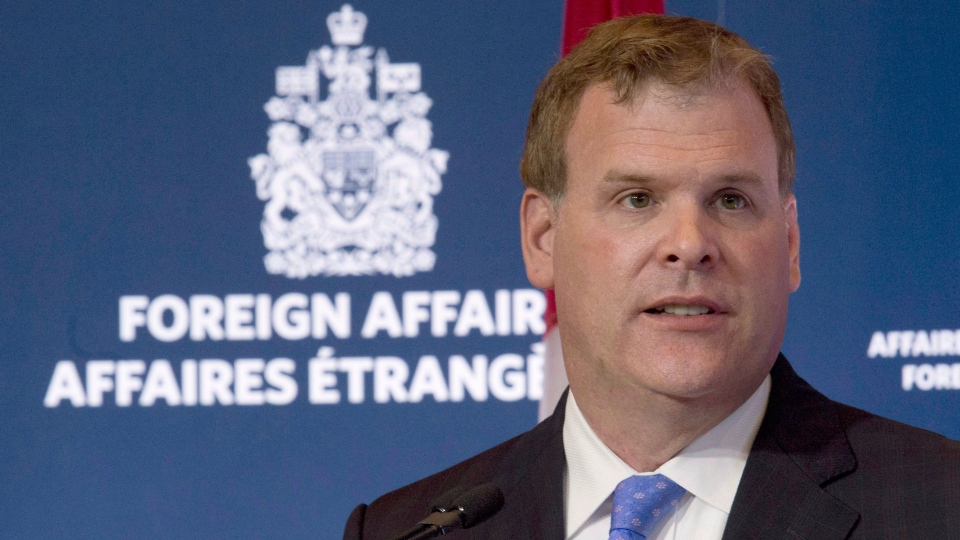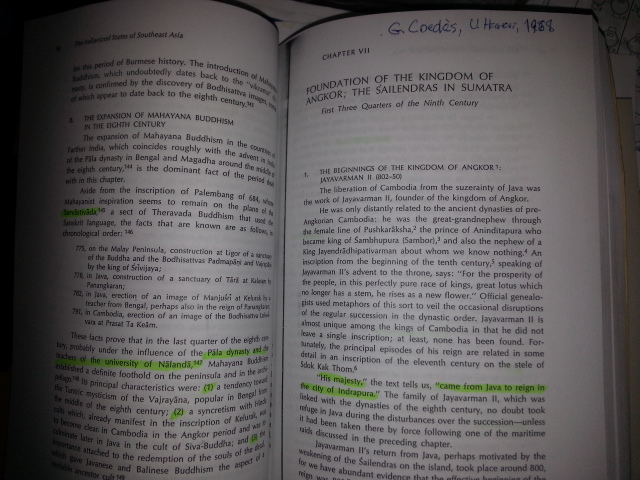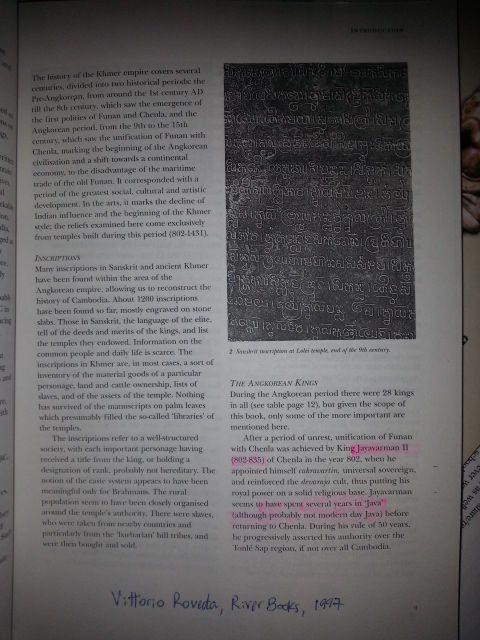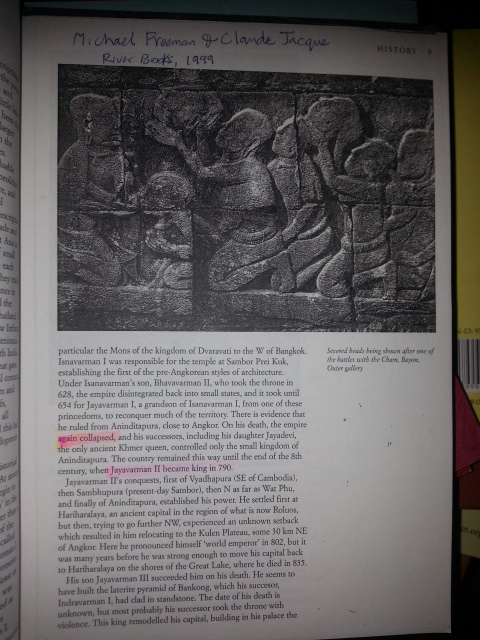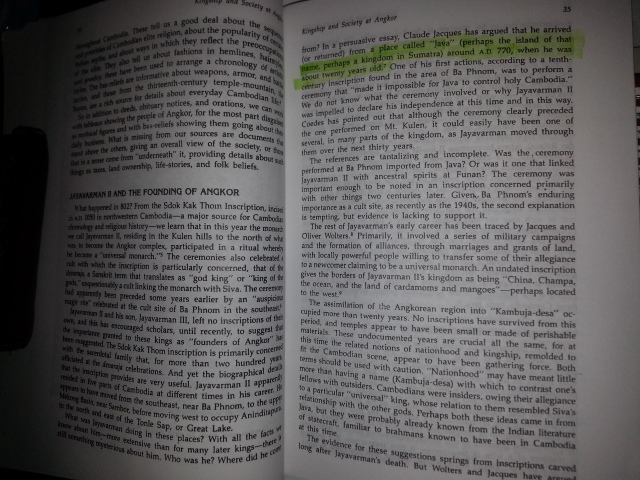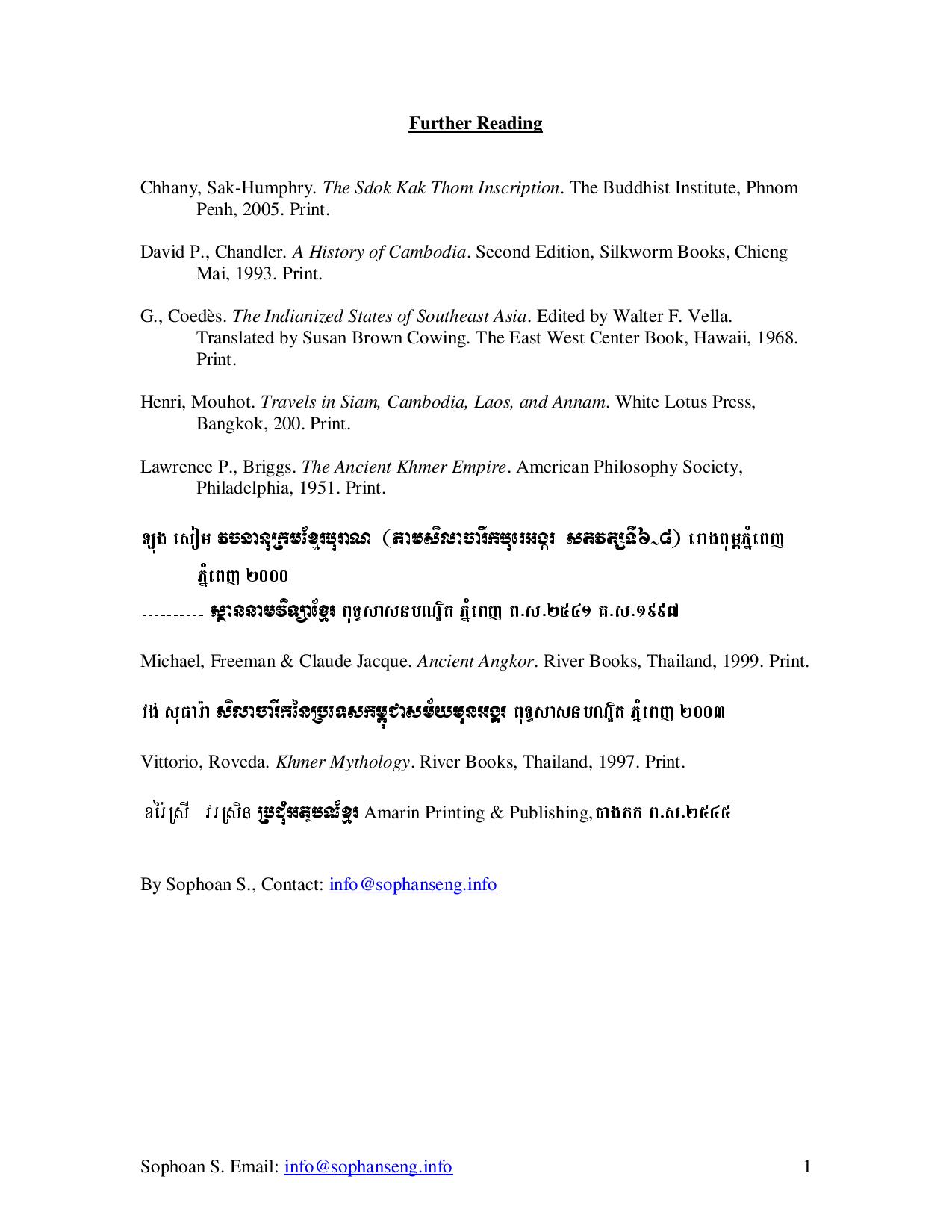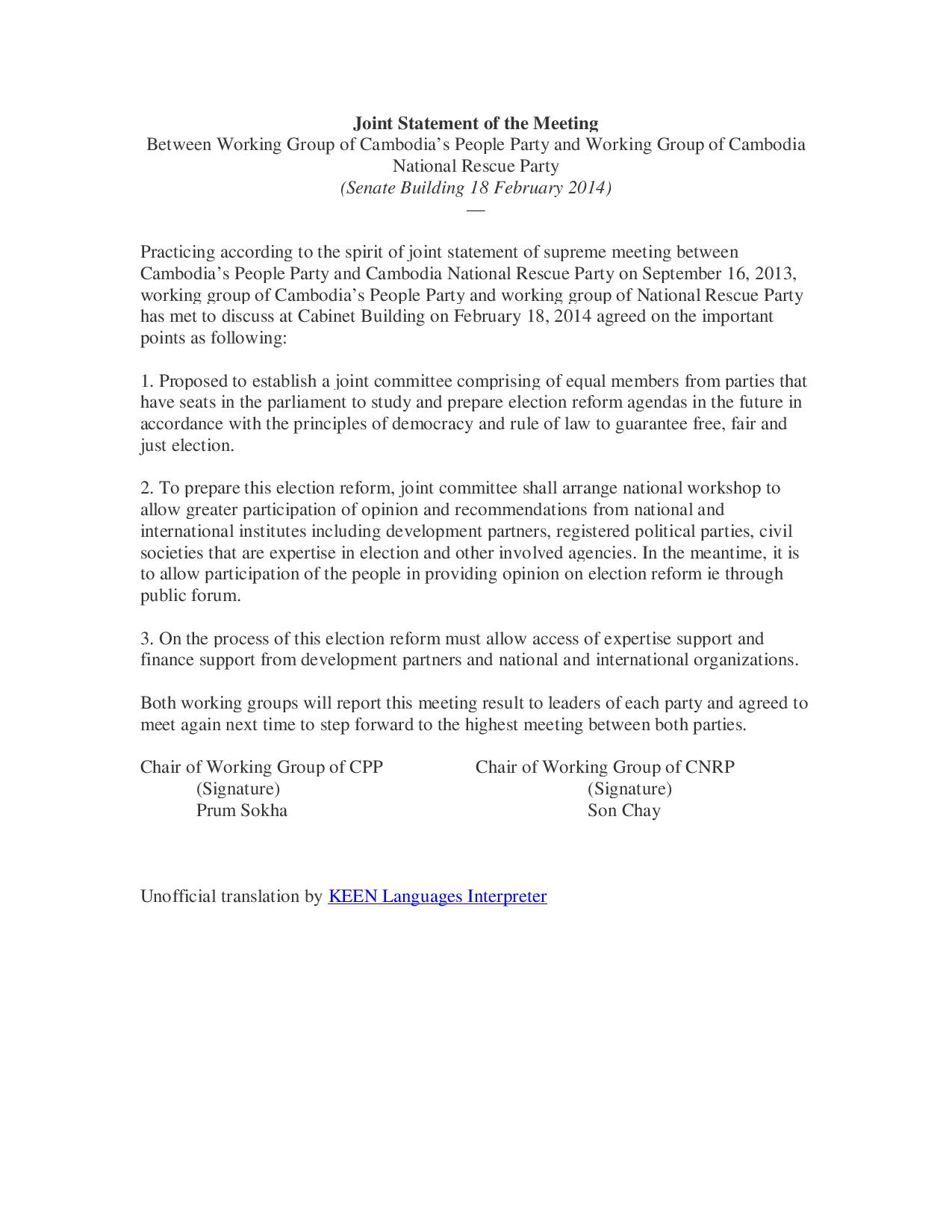Leadership
now browsing by category
Responding Letter from Minister of Foreign Affairs of Canada
Seng Sophoan and Co-signatories
Dear Seng Sophoan and Co-signatories:
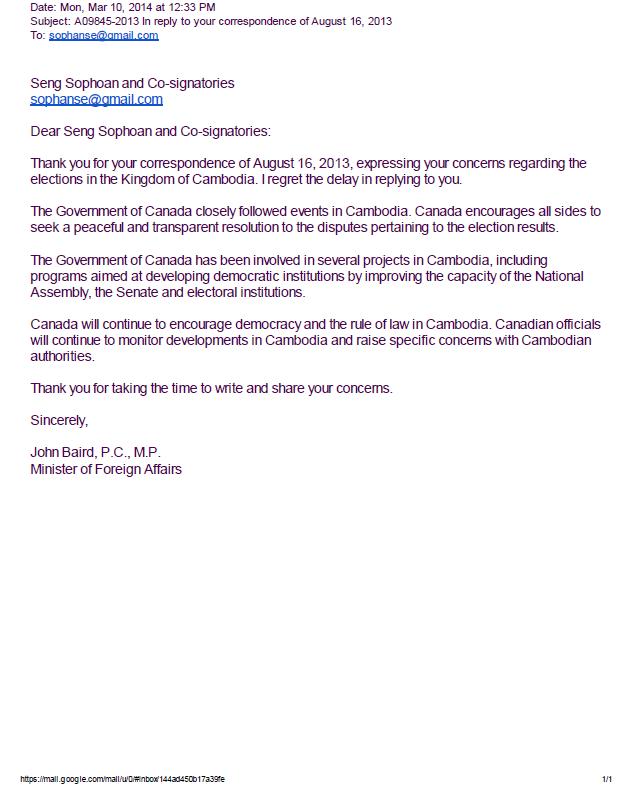
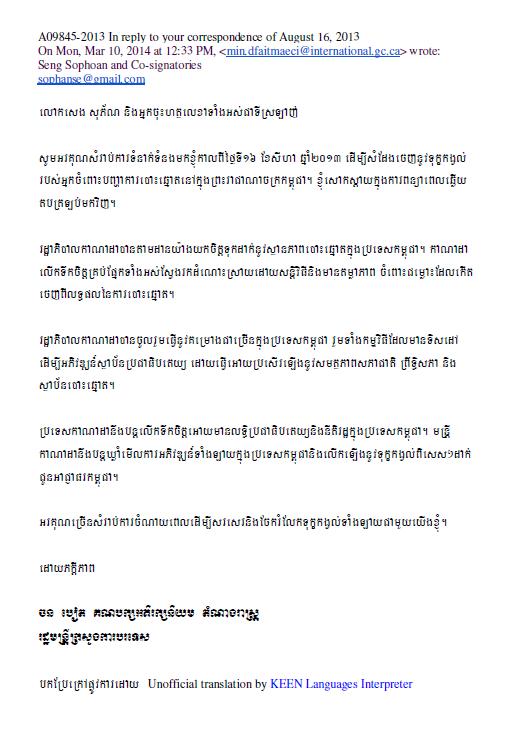 Thank you for your correspondence of August 16, 2013, expressing your concerns regarding the elections in the Kingdom of Cambodia. I regret the delay in replying to you.
Thank you for your correspondence of August 16, 2013, expressing your concerns regarding the elections in the Kingdom of Cambodia. I regret the delay in replying to you.
The Government of Canada closely followed events in Cambodia. Canada encourages all sides to seek a peaceful and transparent resolution to the disputes pertaining to the election results.
The Government of Canada has been involved in several projects in Cambodia, including programs aimed at developing democratic institutions by improving the capacity of the National Assembly, the Senate and electoral institutions.
Canada will continue to encourage democracy and the rule of law in Cambodia. Canadian officials will continue to monitor developments in Cambodia and raise specific concerns with Cambodian authorities.
Thank you for taking the time to write and share your concerns.
Sincerely,
John Baird, P.C., M.P.
Minister of Foreign Affairs
Characteristics of Trustworthy Political Leaders
Characteristics of Trustworthy Political Leaders
1)- Is fair and objective.
2)- Is moving above himself and serving the society.
3)- Is not seeking fame and attention.
4)- Is not into hiding the truth for the sake of looking good.
5)- Is focused on specific, achievable, and measurable goals and demands outcomes.
6)- Encourages people to be accountable for their actions.
7)- Does not pay attention to being politically correct but ethically so.
8)- Does not make idealistic promises but realistic ones.
9)- Is honest even if it does not get approval.
10)- Thinks globally and acts locally.
11)- Takes personal responsibility.
12)- Remains level headed and has a sense of humor.
13)- Has a curious mind.
14)- Does not make himself look good by assaulting others.
A good leader is a self actualized leader. Self actualization is the highest form of human growth, someone who is self actualized is a fully functioning human being. In the past, I have written extensively about the characteristics of self actualized people which can be applied to this article, as well. But the characteristics below are unwaveringly related to a good leader. It is worth to pay attention to these and take them into consideration when we’re making a choice as to whom we chose as a leader. A good leader:
- Is fair and objective. A good political leader does not take what is similar to his views as facts and base his decisions on that. He uses reliable and unfiltered information to make judgments and to come up with resolutions. In other words, he stands above his own believes to observe events objectively while the general public fails to do so. In addition, he does not suffer from a self serving bias.
- Is moving above himself and serving the society. A good leader stands above any specific religious or political views of his own and is independent of any attachment to a specific agenda. His personal beliefs become his private matters and he learns to leave them out the door once he steps into a leadership role. In other words, his belief expands so that it includes everyone’s beliefs.
- Is not seeking fame and attention: A good leader has been able to move above and beyond any egoistic and primitive need for power, attention, or establishing his personal agendas and works with the intention of good-for-all.
- Is not into hiding the truth for the sake of looking good. A good leader says it as it is even if it feels uncomfortable for many to hear it. He is not a people pleaser in a sense that he would say anything to please others even if that means manipulating or misguiding the public. It takes a lot of courage to do this and a good leader has that courage.
- Is focused on specific, achievable, and measurable goals and demands outcomes. A good leader is focused and does not get distracted. His goals, whether small or large, are reasonable and achievable and are directed towards the long term results not quick and temporary fixes that may backfire.
- Encourages people to be accountable for their actions. A good leader helps people understand that they are accountable for their society and its outcome and teaches them to make compromises and responsible choices. He does not support a sense of self-serving entitlement that has gone too far and is counter-productive for the society as a whole.
- Does not pay attention to being politically correct but ethically so. A good leader understands that in order for the whole society to be a functional and healthy one, some adjustments need to be made and people need to learn to give some in order to gain some.
- Does not make idealistic promises but realistic ones. A good leader makes a sustainable promise and is a man of his words.
- Is honest even if it does not get approval. People know where they are standing with an authentic leader. He does not hide bad news just because it is uncomfortable to the public’s ear.
- Thinks globally and acts locally. He realizes that in order for us to live in prosperity as a powerful and blessed country, reasonable steps need to be taken to make sure others achieve the same goals. He is aware that with power comes responsibility and that now more than ever, through technology, we are becoming more and more inner related, globally.
- Takes personal responsibility. A good leader is secure enough with himself to take personal responsibility when one is needed. In other words, a good political leader has an internal locus of control while he is aware of the effects of the external forces.
- Remains level headed and has a sense of humor. A good political leader has a healthy emotional IQ and has learned to move above his emotions, conditionings, and his fixations to specific outcomes to think logically and globally. In other words, he is rational and in control of his emotions and when the public is going through the emotional roller coaster, he is there to guide them through it.
- Has a curious mind. A good leader is thirsty for factual, expert oriented and unbiased knowledge all the time and on all levels.
- Does not make himself look good by assaulting others. A leader that can be trusted does not take others down for himself to go up. He is more of a collaborator than a competitor. He tries to build bridges rather than destroy them. He is a natural mediator rather than one that creates conflict, tension, and separation.
Statement of the Meeting between CNRP & CPP
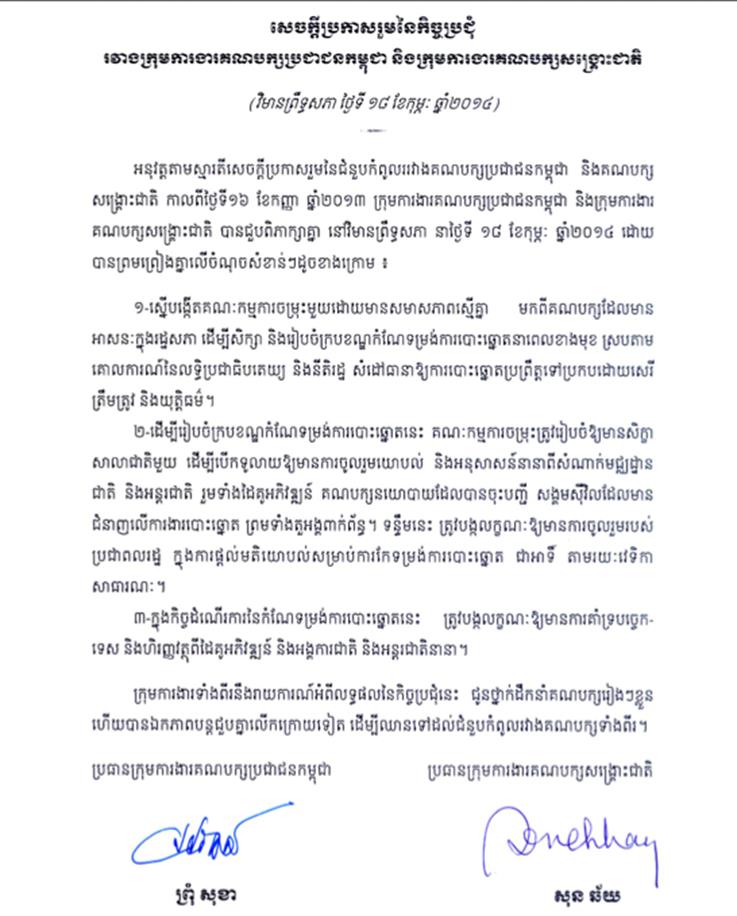
Joint Statement of the Meeting
Between Working Group of Cambodia’s People Party and Working Group of Cambodia National Rescue Party
(Senate Building 18 February 2014)
—












